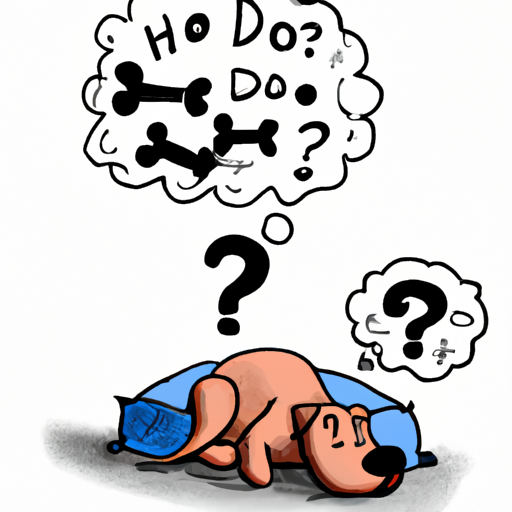As a caregiver, you have probably noticed that your dog often curls up into a tight ball when sleeping. This behavior, while seemingly simple, actually has a rich history and multiple reasons behind it. Let’s delve into why dogs curl up, and what it can tell us about their health, behavior, and even their ancestry.
1. The Ancestry of Dogs
Dogs, like their wild counterparts, have behaviors rooted in their ancestral history. Just as wolves do, dogs curl up to protect themselves and conserve body heat.
- Protection: In the wild, curling up was a defensive strategy to protect the vital organs from predators. Even though dogs have been domesticated for thousands of years, this instinctual behavior persists.
- Conservation of Heat: The curled-up position also helps to conserve body heat, keeping them warm during chilly nights.
2. The Effects of Domestication
Over time, domestication has influenced the behavior of dogs. While they have retained the instinct to curl up, domestic dogs may also do so for comfort or a sense of security.
- Comfort: Similar to humans, dogs have favorite sleeping positions. Some may find the curled-up position the most comfortable.
- Security: Dogs may curl up in their owner’s presence to feel secure and safe. This shows their trust and attachment towards their caregiver.
3. Health Considerations
While curling up is a normal behavior for dogs, excessive curling could indicate certain health issues.
| Health Issue | Signs |
|---|---|
| Pain or discomfort | If your dog suddenly starts curling up more than usual, it could be a sign of discomfort or pain. |
| Anxiety | Dogs suffering from anxiety often curl up as a coping mechanism. |
4. Behavioral Insights
Observing your dog’s sleeping position can provide insights into their behavior and personality.
- Relaxed and content dogs typically sleep in a loose curl.
- Nervous or submissive dogs may sleep tightly curled up.
Understanding these signs can help you better respond to your dog’s needs and provide the necessary care and support.
5. The Role of the Caregiver
As a caregiver, your role is vital for your dog’s well-being. By understanding why dogs curl up, you can ensure a safe and comfortable environment for your furry friend.
- Provide a warm and comfortable sleeping area.
- Regularly monitor their sleeping behavior to detect any sudden changes.
- Consult a vet if any health concerns are observed.
FAQ
Q: My dog curls up even on hot days, is this normal?
A: Yes, curling up is more about comfort and security, not just heat conservation. However, if you notice your dog panting excessively or showing signs of discomfort, it may be too warm for them.
Q: My dog never curls up. Should I be worried?
A: Not all dogs curl up. As long as your dog seems comfortable and is not showing signs of distress or discomfort, there’s no cause for concern.
Q: How can I help my dog if they’re curling up due to anxiety?
A: Providing a safe, comfortable space for your dog can help. Consult a vet or a dog behaviorist for professional advice.
Always remember, your role as a caregiver is crucial. By understanding your dog’s behavior and providing them with a safe and loving environment, you can ensure their happiness and well-being.



